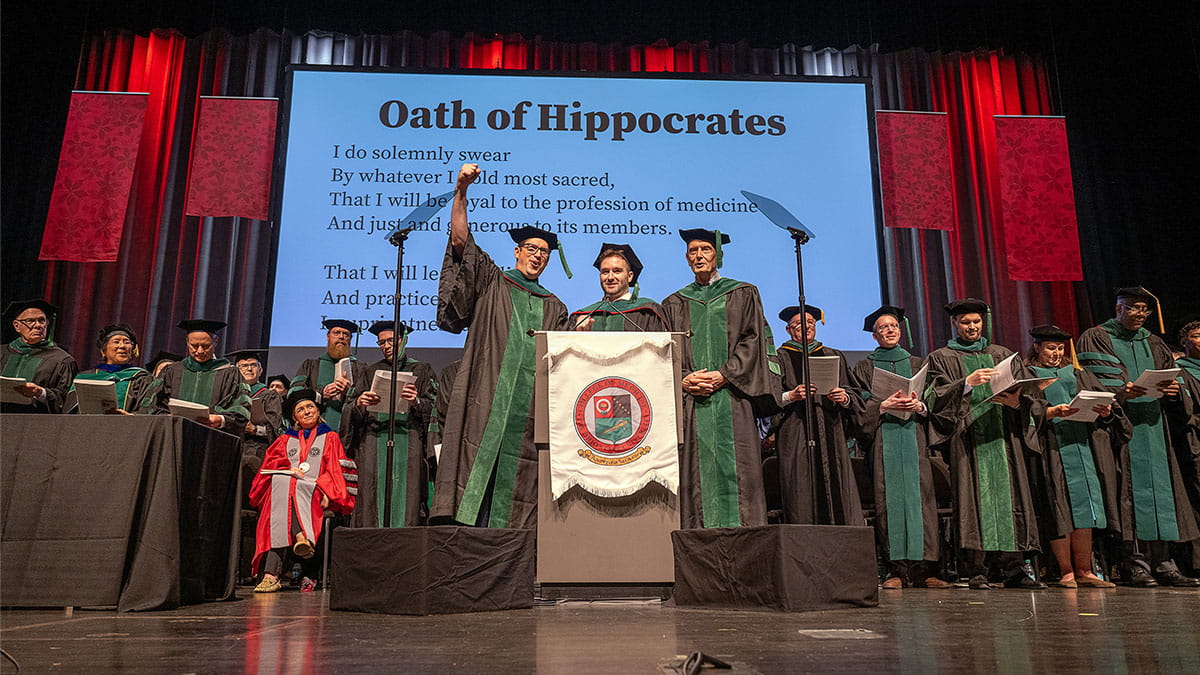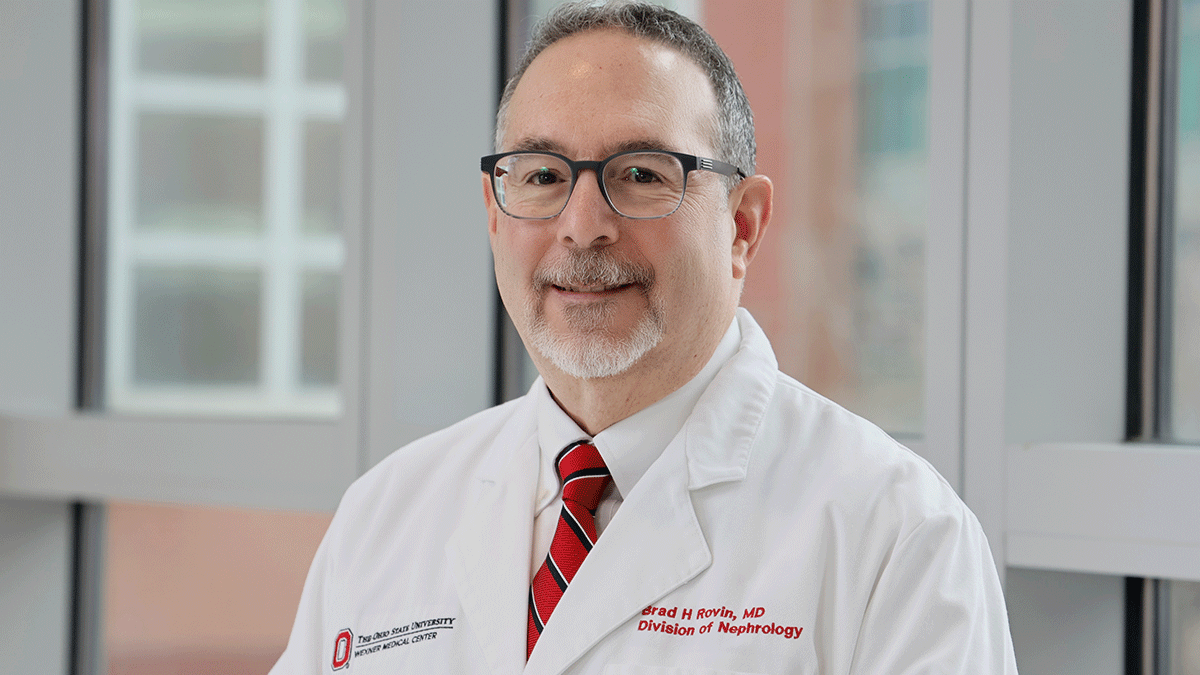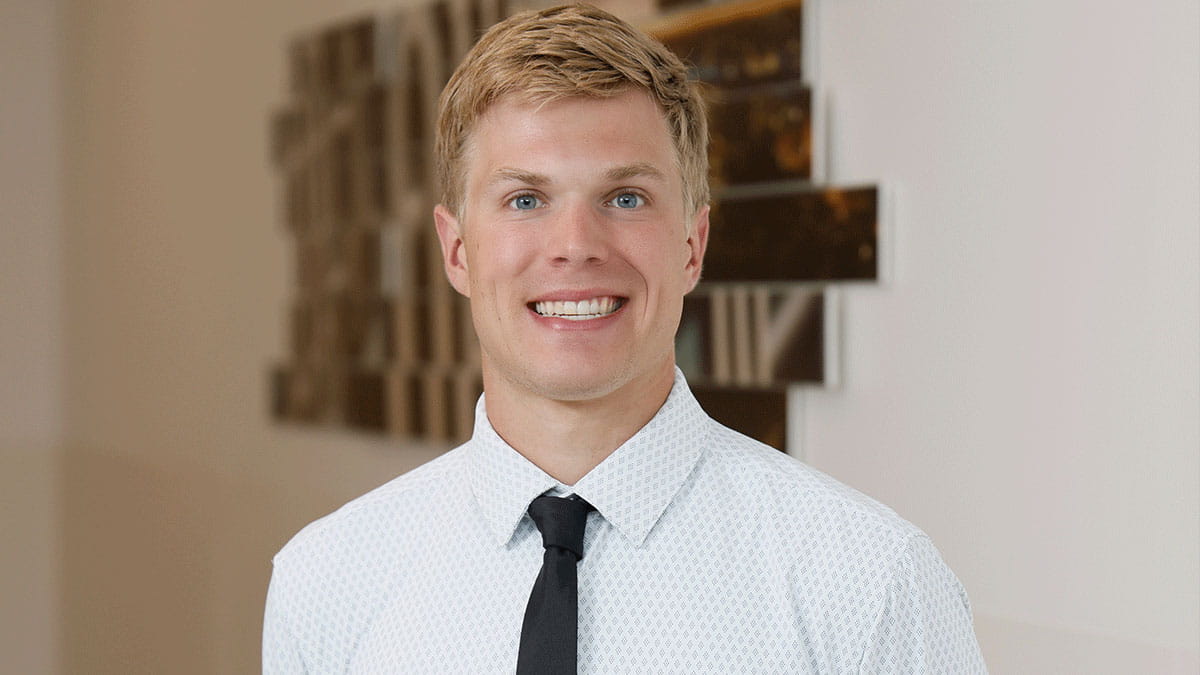The implementation science effect — bridging the gap between what we know and how we apply it in the health care setting

As an emergency medicine physician specializing in geriatrics, Lauren T. Southerland, MD, treats older adults who present with complex cases, both medically and socially. This often means that, on top of having a medical condition that needs treatment, they are also experiencing worsening cognition or issues accessing resources and care.
One way she responds is by going beyond the physical complaint a patient presents with to address other symptoms and unique needs. Another way is focusing her research on implementing best practices and proven solutions in health care delivery.
“I don’t mix chemicals on a lab bench or run large clinical trials,” says Dr. Southerland, who is also an associate clinical professor and the director of Clinical and Implementation Research in the Department of Emergency Medicine at The Ohio State University College of Medicine. “I collect and disseminate evidence to convince health care providers to adapt the way they care for older adults, so the outcomes are better.”
Dr. Southerland was selected for the Fulbright U.S. Scholars Program, and recently returned from visiting and collecting information on how different hospitals across New South Wales and Queensland, Australia, integrate their long-established geriatric protocols and care to patients. Through her technical paper, “Accelerating Geriatric Emergency Medicine Models of Care Dissemination Using Implementation Science,” she aims to take what she’s learned through collaborative research and contribute to impactful changes that will have direct effects on patients in the United States.
She credits the Fulbright program, recommended to her by Ed Boyer, MD, PHD, an emergency medicine physician and a professor in the College of Medicine, for the opportunity to conduct and compile this research and share the data with others in the field.
“This program builds research collaborations and cultural exchange that benefits our society,” Dr. Southerland says. “It allows us to combine our successful practices and influence the adaption of new care that has been proven to be more successful than the protocol we’ve followed, often for years.”
Dr. Southerland says her research involves the examination of a myriad of factors, including health economics and behavior change theory, which contribute to “learning from each other instead of trying to go our own way,” Dr. Southerland says.
The American College of Surgeons and the American College of Emergency Physicians, among others, have been advocating for more national health measures surrounding older adults and hospitals. In the summer of 2024, the Center for Medicare & Medicaid Services approved a new quality measure for patients aged 65 and older, called the Age Friendly Hospital measure. It includes hospitals reporting protocols that they have in place to help patients meet their health goals and manage medication, and implement frailty screening and intervention and assess patients’ social vulnerability.
Dr. Southerland says creating protocols in the hospital setting that are usable and successful starts with building up collaborations to conduct and publish work early on that will strengthen grant and award applications to expand the research. She encourages colleagues to seek support from The Ohio State University Office of International Affairs, which provides comprehensive support and application assistance to students and young professionals interested in pursuing a Fulbright scholarship program.
Dr. Southerland’s ability to compile what she’s learned in an effort to create change in health care is bolstered by her humility, grace and curiosity. The Fulbright program expanded her cross-cultural connection and collaboration, expanding the ability of her research to influence the lives of many.
“I’m using my unique skill set to make things better for patients all over,” Dr. Southerland says.



